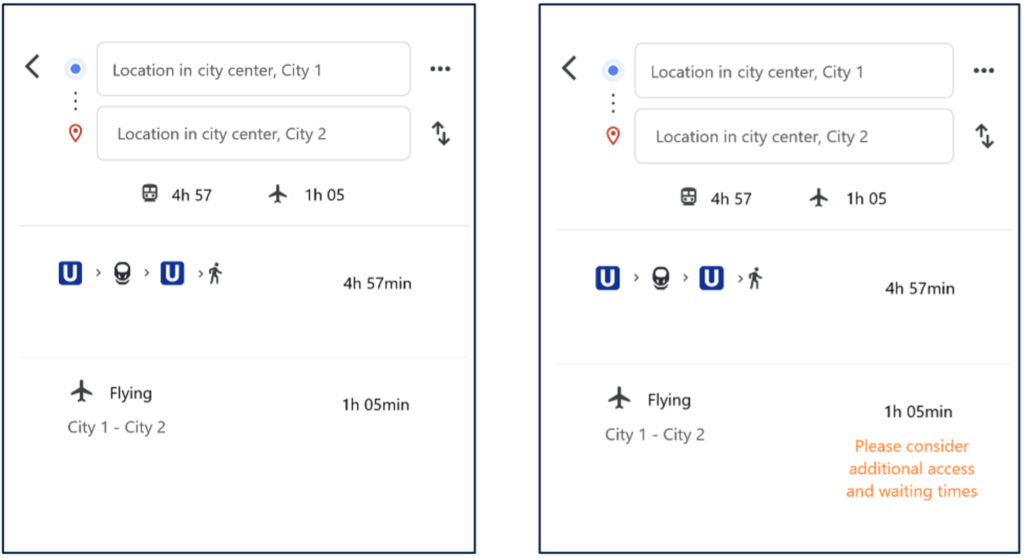Greener or Faster? Debiasing travel time presentation in travel planning apps
This project investigates user decision-making in travel planning apps. It specifically focuses on investigating the impact of increasing the salience of total travel time on mode choice between rail and air travel for business travelers. With that, the project aims to contribute to the development of more effective choice architectures in online travel planning apps, ultimately facilitating informed mode choice, and potentially mitigating environmental impacts.
Challenge
Global aviation is responsible for around 2.5% of global CO₂ emissions and contributes to climate change. Passenger numbers in global air traffic have increased on average by 4.4% per year since the 1970s and are expected to continue rising. In contrast, rail transport is considered one of the most environmentally friendly modes of transport with a low carbon intensity. Substituting flights with train travel can therefore considerably reduce transport-related CO2 emissions.
Previous studies show that travel time is one of the decisive factors in the choice between rail and air travel for individuals. However, this factor is subject to a systematic cognitive bias: in deciding on the mode of transport, individuals tend to neglect the times involved in getting to and from the airport, security checks and similar processes associated with air travel. This creates a strong bias in favor of air travel. This issue is exacerbated by the fact that that current travel planning apps (e.g., Google Maps) also provide net travel times (excluding arrival and departure times) for air travel, as opposed to total travel times for rail travel.

Approach
We run online experiments employing a randomized controlled trial study design, focusing on participants with prior business travel experience. Throughout these experiments, we record participants’ choices between rail and air travel when presented with varying levels of salience regarding total travel time within a travel planning app. Additionally, we collect data on sociodemographic aspects, perceptions of the online planning app, and relevant constructs related to environmental behavior, travel time productivity, and usual travel behavior.
Team
Sophie Kuhlemann, Prakhar Mehta, Verena Tiefenbeck
If you are a student who is interested in writing your thesis involving the research focus of this project, please check this page for open topics, or reach out to Sophie Kuhlemann.